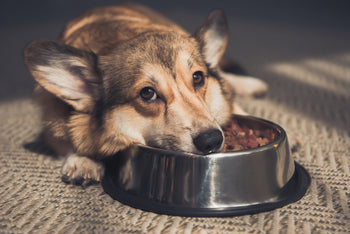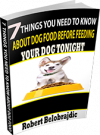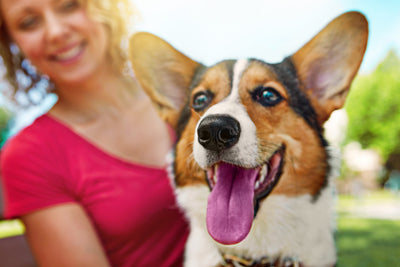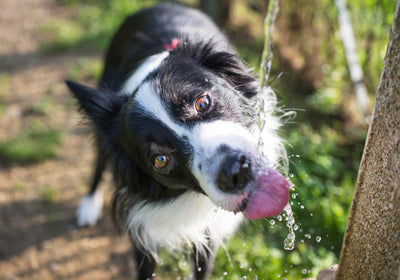Why is My Dog Not Eating? Understanding Common Causes and Solutions.

As a loving dog owner, it can be concerning when your furry companion refuses to eat. Loss of appetite in dogs can be attributed to various reasons, some of which are minor and temporary, while others may indicate a more serious underlying issue. In this article, we will explore the common causes behind a dog's lack of appetite, as well as provide helpful solutions to ensure your pet's well-being and appetite are restored.
Normal Behavioural Factors:
Before jumping to conclusions, it's essential to understand that occasional changes in a dog's appetite can be normal. Just like humans, dogs may experience variations in their hunger levels from time to time. Factors such as hot weather, changes in routine, or mild digestive upsets, from eating something in the yard can affect their appetite. Observe your dog's behaviour, energy levels, and overall health, and if your dog seems well within itself, it is probably a passing thing, and no need for concern.
Dietary Issues:
a. The most common cause for a dog going off its food is overfeeding. Small dogs under 5kg need very small meals. The amount may look like "not enough" to humans, but we weigh 50kg and over. A 1kg adult chihuahua, if lean, needs about 50g of food per day. If it's overweight it may need as little as 30g of a high quality dry food per day. Remember that about 70% of dogs in Australia are overweight, so if your dog goes off its food, and it's not a medical reason, chances are you should be cutting back on the food. Once you do cut back, you will notice your dog never skips a meal.
b. Food Preference: Dogs, like us, can have their preferences. If you've recently changed their diet or introduced new food, your dog might simply be expressing a dislike for the new taste or texture. Experiment with different food options to find one that suits their palate.
c. Spoiled Food: Dogs have a keen sense of smell, and spoiled or rancid food may be a major turn-off. Always check the expiration dates of commercial pet foods, and ensure proper storage to maintain freshness.
Health Issues:
a. Dental Problems: Painful or infected teeth, gum disease, or oral injuries can make eating uncomfortable for your dog. Check for signs of excessive drooling, bad breath, swollen gums, or difficulty chewing. If any abnormalities are noticed, consult your veterinarian for a dental examination.
b. Digestive Upsets: Dogs may experience occasional digestive upsets due to dietary indiscretion or ingestion of non-food items. These upsets can lead to nausea and a temporary loss of appetite. Monitor your dog for symptoms like vomiting, diarrhea, or abdominal discomfort. If these symptoms persist or worsen, consult your veterinarian for guidance.
c. Illness or Infection: Various illnesses, infections, and underlying medical conditions can cause a decreased appetite in dogs. These may include infections, kidney or liver disease, gastrointestinal issues, or hormonal imbalances. Look for additional signs such as lethargy, weight loss, changes in thirst, or abnormal behaviour. If you suspect your dog is unwell, seek veterinary attention promptly.
d. Medications and Vaccinations: Some medications and vaccinations can have temporary side effects, including appetite loss. If your dog's appetite decreased after starting a new medication or receiving a vaccination, consult your veterinarian to determine if this is a normal reaction or if any adjustments are necessary.
Emotional and Environmental Factors:
Dogs are sensitive beings, and their appetite can be influenced by emotional and environmental factors. Stress, anxiety, grief, or a change in surroundings can lead to a temporary loss of appetite. Ensure your dog is provided with a calm and secure environment and plenty of exercise and mental stimulation.
A dog's decreased appetite can be a cause for concern, but it's important to approach the situation with a calm and observant mindset. By considering the various factors that may contribute to their diminished appetite, such as normal behavioural changes, dietary issues, health problems, or emotional factors, you can take the appropriate steps to help restore your dog's appetite and overall well-being. If you have any doubts or if the loss of appetite persists, always consult with your veterinarian to ensure your furry friend receives the necessary care and attention they deserve.








